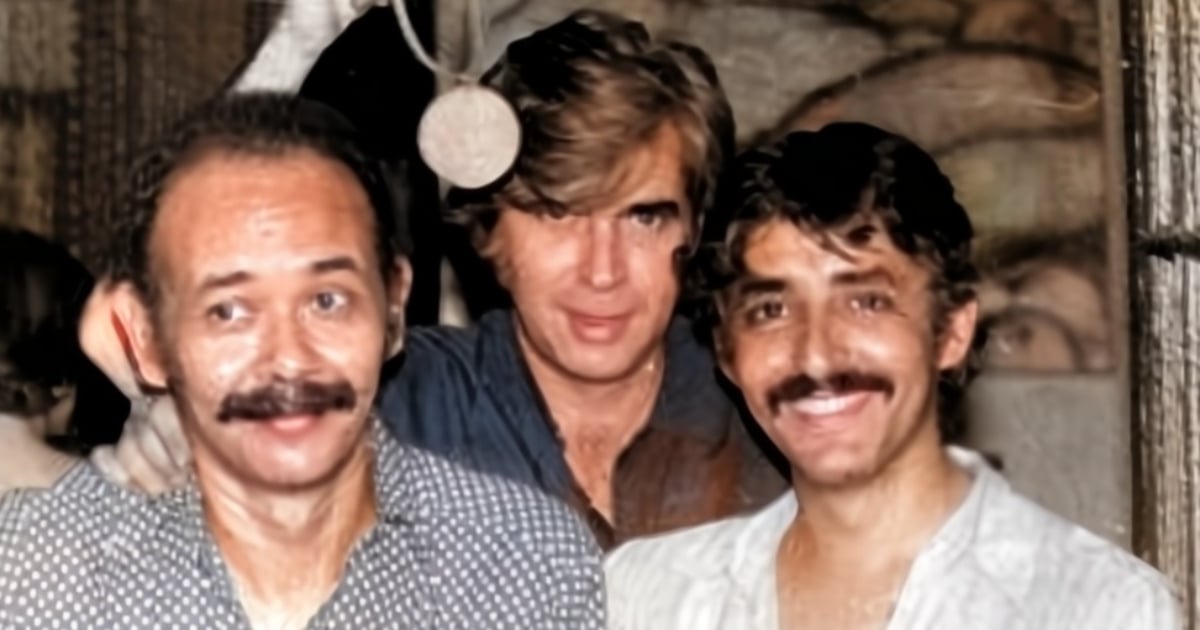
Related videos:
José "Pepe" Horta, a prominent Cuban cultural manager, art collector, and businessman, passed away at the age of 72 in his home in Vedado, Havana, apparently due to a heart attack.
His passing, reported by the news portal Café Fuerte, marks the end of a life dedicated to promoting Cuban art and culture, both on the island and in the diaspora. This promotion was characterized by the highs and lows inherent to a totalitarian regime, which ultimately forced into exile a former high-ranking official in the cultural sector on the island.
Horta was a key figure at the Cuban Institute of Cinematic Art and Industry (ICAIC) and a close collaborator and personal friend of Alfredo Guevara, the founder of the institution.
Since the 1970s, he played significant roles, including leading International Relations and the International Festival of New Latin American Cinema.
Among the highlights of his career is the support for films like Fresa y chocolate (1993), a work that questioned social intolerance and the persecution faced by homosexuals in Cuba, and which received significant international acclaim.
A break with Cuba
In May 1994, while attending the Cannes Film Festival, Horta announced that he would not be returning to Cuba. This decision came amid a backdrop of social crisis on the island, including a rise in incidents of refugees seeking asylum in foreign embassies.
In interviews, he expressed his frustration with the deteriorating conditions in Cuba, stating that "things have worsened significantly in recent months."
This act marked his distancing from ICAIC and the official cultural environment, although he maintained his commitment to promoting Cuban culture from exile.
His relationship with Guevara, although close, faced tensions due to the internal power dynamics at the ICAIC and the political pressures of the time.
The rebirth in Miami
After emigrating to the United States, Horta founded the iconic Café Nostalgia on Calle Ocho in Miami in 1994. This bar-cabaret not only became a gathering place for the Cuban diaspora but also revitalized the music and traditional art of republican Cuba.
Established and emerging artists found in this space a platform to connect with their roots and audience. The impact of Café Nostalgia transcended Miami, attracting figures from the international entertainment scene and contributing to the resurgence of interest in classic Cuban music.
Later, Horta tried to replicate this success with a venue in Miami Beach, although the initiative did not have the same impact, and the cultural promoter turned businessman ended up selling both businesses, as recalled by the editor of Café Fuerte, Cuban journalist Wilfredo Cancio Isla.
The end of a visionary
Horta was also known as a prominent art collector, possessing a valuable collection of contemporary Cuban works, which garnered him the envy of other officials, rumors about the origins of the pieces, and ultimately, an investigation into his assets following Guevara's death.
The director of ICAIC, a member of the Communist Party and a close friend of the dictator Fidel Castro, was another avid art collector, known for his predatory intent among artists, the power elite of the regime, and officials of the State Security.
In 2019, she brought her artistic vision to life with the creation of Villa Café Nostalgia in Viñales, Pinar del Río. This space combined her love for art and nature, offering concerts, cultural activities, and a unique experience in the Cuban countryside.
In recent years, Horta split his time between Miami and Havana. Despite having been a victim of a violent assault in his home in Cuba, he continued to passionately promote Cuban culture. His passing has sparked a wave of condolences on social media, where friends, artists, and former colleagues have shared memories and tributes to his life and legacy.
Filed under: